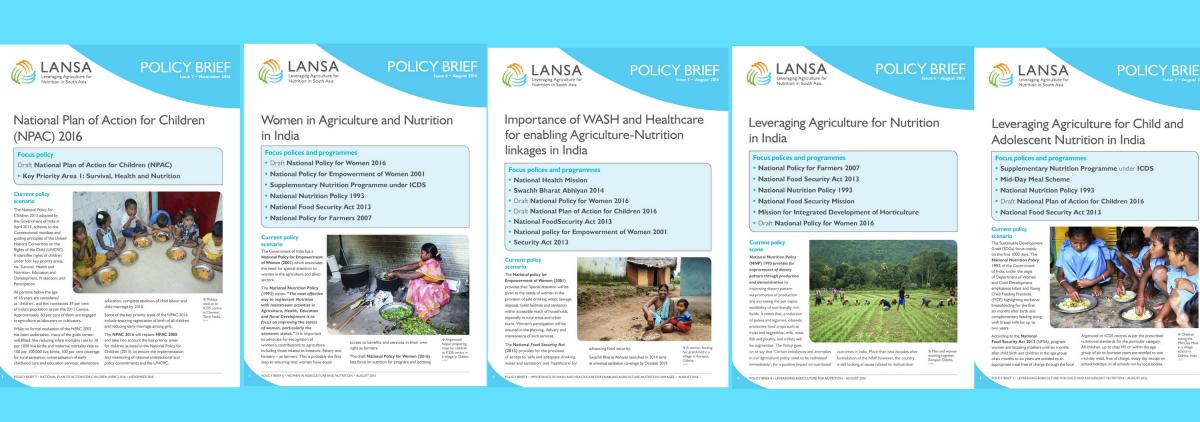Research Uptake: Inform Policy and Practice
We involve and engage stakeholders in our research from the outset. By doing this we create demand for the evidence generated by our programme

Photo credit: LANSA
The sense of ownership created through our stakeholder engagement plans makes it more likely that our research findings will be used to inform policy and programmes.
A wide range of interrelated factors influence whether a piece of research sits on a shelf or is used in the development of policy. According to the Overseas Development Institute (ODI) these factors are summarised under three headings: Political Context, Links and Evidence (Court et al. 2004). Understanding how these factors interlink is key to ensuring LANSA’s research findings inform policy. We are using the ODI framework to build our knowledge of the policy context, and create and build links with key actors.
Engaging stakeholders
Our research uptake strategy primarily involves engaging a wide range of stakeholders in the focus countries, and regionally. Meetings with stakeholders, during the inception phase, began a process of relationship building around our research agenda.
Desk research and stakeholder mapping exercises determined who the major actors are in the agriculture/nutrition arena, and the level of support and influence they have. Interviews with stakeholders in 2013 helped us understand the barriers and constraints they face in using research in their decision-making processes.
Stakeholder consultation meetings in early 2014 enabled us to identify gaps in LANSA’s planned research programme. Feedback from these meetings in Bangladesh, India and Pakistan informed the research topics that were included in LANSA’s Call for Proposals later that year. Periodic two-way engagement with agri-nutrition stakeholders kept us informed of developments on the policy front.
We found the online medium an effective and efficient way to keep communication active with stakeholders across the region, and in 2015 we hosted and co-hosted online discussion forums on several topics related to agriculture and nutrition. One such event informed LANSA's second Call for Proposals later that year. Peer learning, knowledge sharing and networking were results from effort. The e-discussion events opened-up doors of engagement with stakeholders in Afghanistan for the very first in LANSA.
Research dissemination seminars, conference participation, and face-to-face meeting continued to happen in Bangladesh, India and Pakistan. The LANSA India e-newsletter was launched in 2015 to keep agri-nutrition stakeholders abreast of research and uptake happenings in India. LANSA research in the focus countries received a lot of national press attention.
In 2016 we stepped up our engagement with individual stakeholders whom we began to see as 'Champions' for nutrition, and continued online discussions to present LANSA research. We conceptualised and organised several social media campaigns on International and national 'days of significance' that proved cost-effective and more visibility for LANSA research. Afghanistan had its very first stakeholders engagement consultation in 2016, and major national policy consultations were organised in Bangladesh and India.
High Quality RESEARCH COMMUNICATIONS
The stakeholder research, described above, is helping us understand what influences our stakeholders most when developing policy, and how they prefer to hear about new research. We aim to meet their needs when presenting and packaging research. The types of communication activities for sharing research findings include: face-to-face meetings, workshops, media, and conference and seminar events, also online.
Communication products are tailor-made for different audiences and include a wide range using print, video and audio mediums. Policy briefs, research briefs, brochures, leaflets, summary reports as well as films are used to communicate LANSA research. Some are translated in country languages and distributed at events to relevant stakeholders. Knowledge translation products have proved effective when reaching out to stakeholders at local governance levels in the LANSA focus countries.
Strengthening research uptake capacity
We strengthen our capacity to promote research uptake by using a specially designed uptake self-assessment tool, we identify best research uptake practice amongst partners. The capacity assessment exercise informs a training/mentoring programme tailored to meet the needs of LANSA partners. Find out more about the Research Uptake Self Assessment Tool here.
We also work with strengthening research uptake capacity of agriculture and nutrition stakeholders in the LANSA focus countries. Several such workshops organised in 2014 and 2015 in India have broadened stakeholder understanding to identify and use research evidence, and have also helped us draw out 'windows of opportunity' for policy impact. Cross-learning and knowledge sharing has encouraged us to keep the engagement with stakeholders and has sharped our uptake strategy.
In 2016, we organised a workshop to build uptake capacity for Afghanistan agriculture scientist - a first successful attempt for LANSA!







